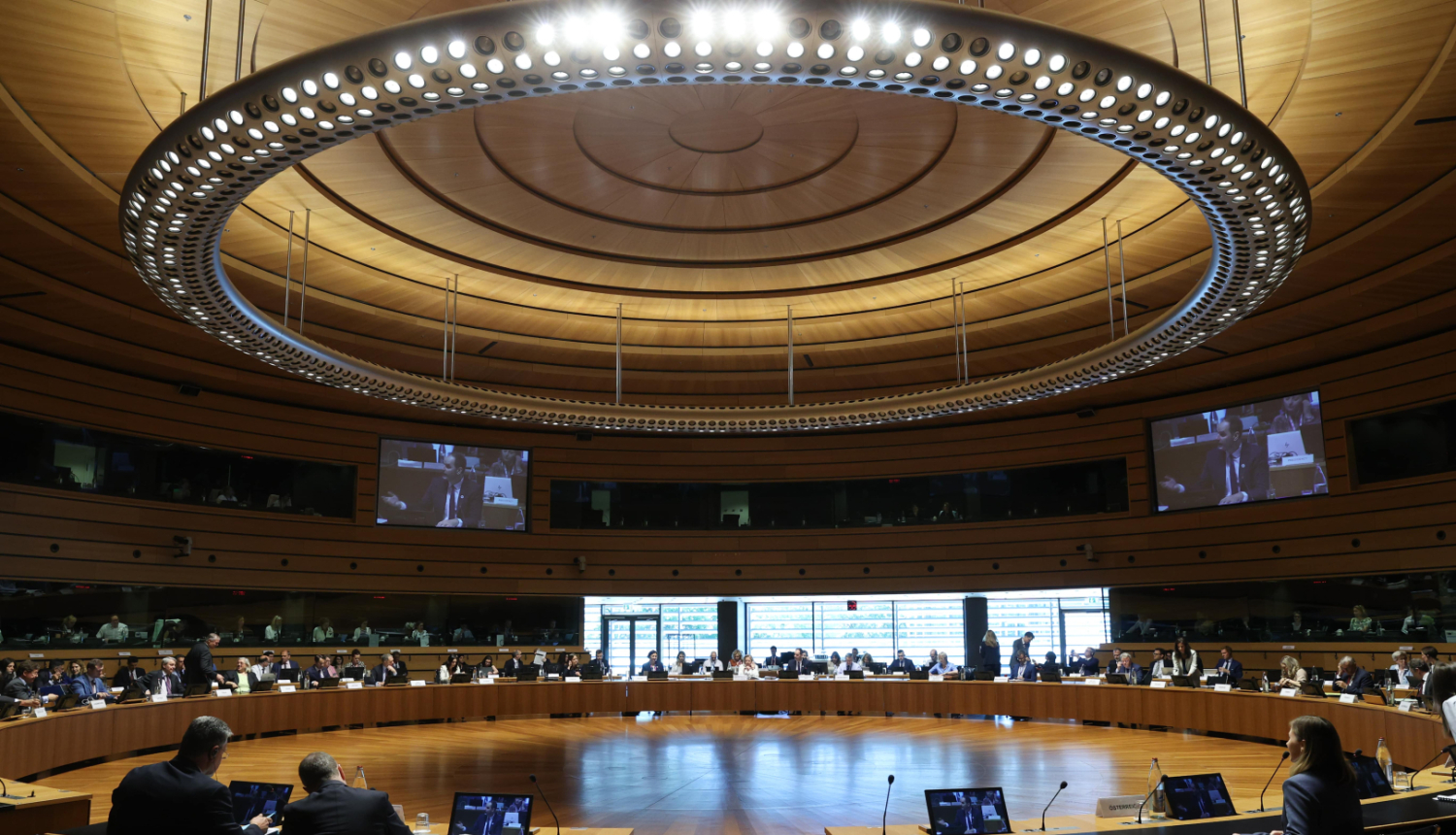On 24 June 2025, in Luxembourg, the Parliamentary Secretary of the Ministry of Foreign Affairs, Artjoms Uršuļskis, took part in the General Affairs Council of the European Union (EU), during which preparations were made for the European Council meeting on 26–27 June.
“It is essential to maintain focus on Ukraine by ensuring continuous support and by intensifying pressure on Russia. One of the main priorities is increasing military support for Ukraine through both EU mechanisms and bilateral assistance. In this context, unlocking funding for the European Peace Facility is of particular importance. A crucial factor in ensuring a just and lasting peace in Ukraine is deterring Russia from renewed aggression,” emphasised Parliamentary Secretary Artjoms Uršuļskis during the discussion on the draft conclusions of the June European Council.
In addition to the above, representatives of the Member States were also briefed on the priorities of Denmark’s Presidency of the Council of the EU. Denmark will assume the Presidency on 1 July this year. Its agenda will be shaped by two main priorities: security and defence, and the EU’s competitiveness. Continued EU support for Ukraine and strengthening the EU’s defence industry will remain high on the Presidency’s agenda. The Presidency will also continue active work on the development of the next EU multiannual budget and efforts to reduce the EU’s dependence on Russian energy and also its fossil fuel energy.
Based on the European Commission’s annual Rule of Law Report published in July 2024, a discussion was also held on the rule of law situation in Finland. In addition, the meeting concluded work on the 2025 European Semester cycle by endorsing the recommendations developed for EU Member States — including Latvia — concerning economic, social, employment, structural, and budgetary policies.
The General Affairs Council addresses issues that affect more than one EU policy area, such as enlargement negotiations, preparations for the European Council, the EU’s multiannual budget, as well as matters related to the rule of law, institutional and administrative issues.




